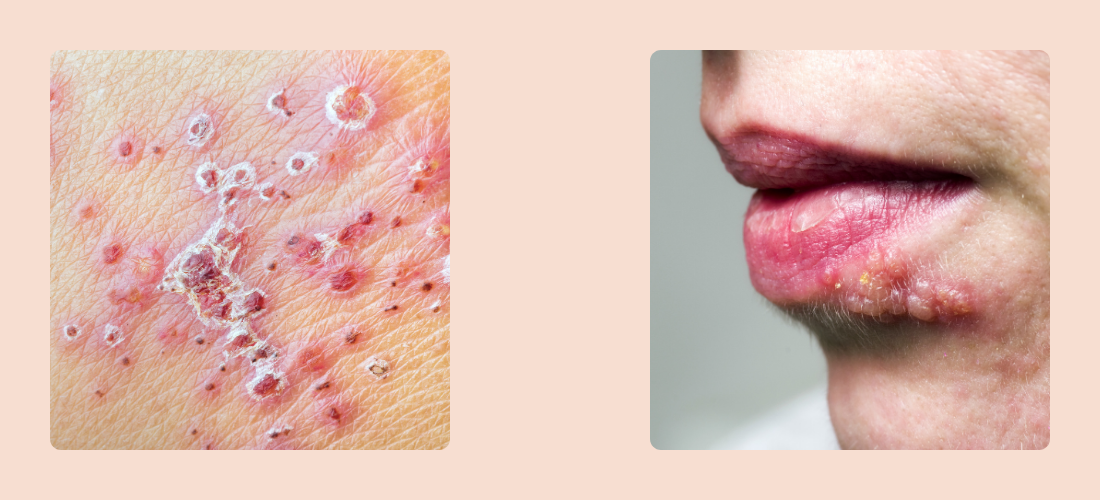Herpes Infection: Symptoms, Causes, Diagnosis & Treatment in India
What is Herpes?
Herpes is a common viral infection caused by the Herpes Simplex Virus (HSV). It primarily affects the skin and mucous membranes, leading to painful blisters or sores. There are two main types:
- HSV-1 (Oral Herpes): Usually causes cold sores around the mouth.
- HSV-2 (Genital Herpes): Mainly causes sores in the genital or anal area.
Herpes is highly contagious and spreads through close personal contact, including kissing, sexual activity, or sharing personal items.
How Common is Herpes in India?
Herpes infections are widely underreported in India due to stigma and lack of awareness. However, studies estimate that over 10–15% of the population may carry HSV, especially HSV-2, even if they are asymptomatic.
Symptoms of Herpes
Symptoms vary depending on the type and severity of the infection.
Common Signs Include:
- Painful blisters or sores on the mouth, lips, genitals, or anus
- Itching or burning sensation before sores appear
- Fever and body aches (during the first outbreak)
- Swollen lymph nodes
- Painful urination (in genital herpes)
Many people with herpes may not show any symptoms, but they can still transmit the virus.
How Herpes Spreads
Herpes is transmitted through:
- Oral or genital contact (including sexual activity)
- Sharing utensils, razors, or towels with an infected person
- From mother to baby during childbirth (neonatal herpes)
Diagnosis
Doctors can diagnose herpes through:
- Physical examination of the sores
- Swab test from an active sore
- Blood test to detect HSV antibodies
If you suspect a herpes infection, it’s essential to consult a dermatologist or gynecologist/urologist.
Treatment Options
There is no permanent cure for herpes, but antiviral medicines help manage outbreaks and reduce transmission.
Common Medications:
- Acyclovir
- Valacyclovir
- Famciclovir
For recurring outbreaks, doctors may recommend daily suppressive therapy.
Prevention Tips
- Avoid skin-to-skin contact during outbreaks
- Use condoms or dental dams during sex
- Avoid sharing personal items like lip balm, towels, or razors
- Get regular STI screenings if sexually active
Living with Herpes
Though the diagnosis can be emotionally challenging, remember:
- It’s a manageable condition
- Many people live healthy lives with herpes
- Support groups and counseling can help cope with stress and stigma
When to See a Doctor
Visit a healthcare provider if you:
- Notice blisters or sores in the mouth or genital area
- Experience frequent recurrences
- Are pregnant and suspect you have herpes
Final Word
Herpes is more common than most people realize and doesn’t define your health or self-worth. With the right care and lifestyle changes, you can manage herpes effectively. Early diagnosis and treatment can make a big difference.
Ready to Discuss Herpes Treatment?
Schedule a personalized consultation with our expert healthcare providers today.
Book Your Consultation Now.png)
